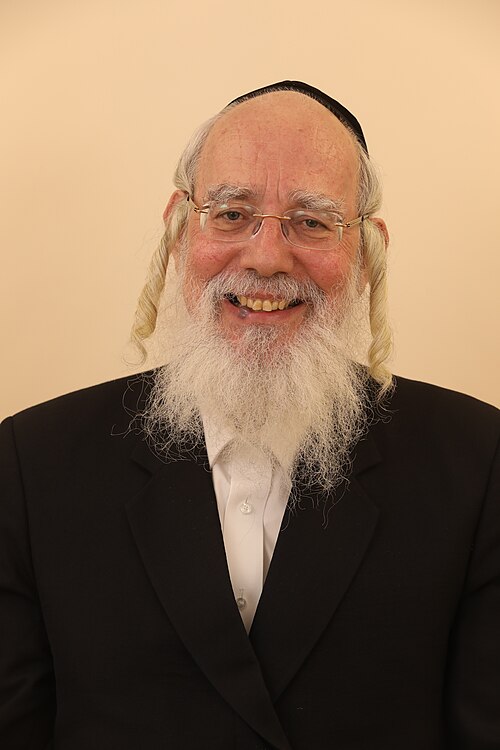Israel Eichler
(1955 - )

Israel Eichler is a long-serving Israeli politician, journalist, and public figure affiliated with the United Torah Judaism (UTJ) party and its Hasidic faction, Agudat Yisrael. A Belzer Hasid, Eichler’s public career has been marked by his efforts to represent the interests of the ultra-Orthodox community in Israeli political life and to defend traditional Jewish values in the face of secular and progressive pressures.
Eichler was raised in Jerusalem and educated in Belz institutions and the “Machzikei Hadat” kollel, where he received a strong foundation in Torah and rabbinic literature. He began his public life as a journalist, founding and editing the ultra-Orthodox newspaper HaMachane HaHaredi in 1980. He also served as chair of the Center for Jewish Publicity in 1996 and actively promoted Haredi perspectives in the media. In parallel with his journalistic career, he became known as a lecturer and author focused on Jewish thought and social commentary.
His political career began in 2003 when he entered the Knesset as part of a rotation agreement within UTJ, serving two years in the 16th Knesset. He was appointed chair of the Special Committee for Public Petitions and participated in the Finance Committee. Eichler returned to the Knesset in 2009 and has served multiple consecutive terms since, during which he held a range of committee roles—including on the Finance, Education, Labor, and Welfare Committees—and was actively involved in parliamentary friendship groups with Belgium and Hungary.
Eichler, a vocal and sometimes controversial figure, has consistently advocated for Haredi autonomy in religious, educational, and cultural matters. He has defended the exemption of yeshiva students from military service, opposed reforms at the Western Wall that accommodate non-Orthodox denominations, and criticized what he describes as the undue influence of secular elites in Israeli legal and cultural institutions. In his view, the Reform and Conservative movements misrepresent diaspora Jewry and pose a challenge to Jewish unity. He has compared their efforts at the “Kotel” to provocations and argued for maintaining religious control over key public symbols of Jewish identity.
Eichler emphasizes the need for Jewish identity as central to Israel’s national character. He supports a Jewish democratic state, though he has expressed concern that secular policies and cultural funding undermine its Jewish nature. He believes that Orthodox communities must be more proactive in public relations, both within Israel and abroad, to counterbalance the influence of progressive organizations.
In July 2025, Eichler was appointed Israel’s Minister of Housing following the resignation of his party colleague Yitzhak Goldknopf amid a dispute over military conscription of Haredi youth. Though his appointment was initially delayed due to security concerns, Prime Minister Benjamin Netanyahu ultimately formalized it to maintain coalition unity. The role is expected to be temporary, with plans for Eichler to return to his previous position as chair of the Knesset Labor and Welfare Committee once Goldknopf resumes his ministerial post.
Eichler is deeply involved in promoting Jewish culture and folklore outside the political arena, primarily through music and storytelling. His contributions reflect a lifelong commitment to preserving Jewish heritage and ensuring that religious life remains central in Israeli society.
He lives in Jerusalem with his wife and their 14 children.
Source: “Knesset Member Israel Eichler,” Israeli Knesset.
“MK Rabbi Yisrael Eichler: Defending Israel From Within and Without,” SaraLehmann.com, (May 13, 2018).
Sam Sokol, “UTJ lawmaker takes over as housing minister following Goldknopf’s resignation last month,” Times of Israel, (July 2, 2025).
Photo: Itzhak Harari / Knesset Archives, CC BY-SA 4.0, via Wikimedia Commons.


